|
Since the pandemic began, Work-From-Home (WFH) has been lauded as the new working model for many occupations.
Now, with vaccination efforts ramping up, some employers are eager to get their staff back to the office. “Organisations need to plan and execute that migration sensibly and with sensitivity to keep productivity high,” says Muhammed Goolab, Exco member at the South African Reward Association (SARA). He offers the following advice on key considerations they should be aware of. Unique business needs Unique driving forces may require employees to resume their duties on premises. Certain types of teams are simply more productive working together than remotely. Some management structures and styles are not easily adapted for digital collaboration, or managers perceive a loss of control under a WFH model. It can also be more difficult to onboard new employees or impart essential skills to junior staff at a distance. Remote employees themselves could feel disconnected from the organisation and isolated from their peers. A lack of personal connection can weigh heavily on their mental health, well-being and productivity. “This is especially concerning when the customer experience is impacted by demotivated frontline staff,” says Goolab. Hybrid working models Although circumstances may require a return to work, employers will likely favour a hybrid model. A mix of on-site and WFH employees can increase productivity and offer flexibility that promotes employees’ overall well-being. While remote workers enjoy lower work-related expenses, like travel, employers can also scale back on office space, equipment, canteen and other costs. “Conversely, tensions need to be managed as on-premises workers may perceive their remote counterparts as less productive but receiving better benefits, and therefore unfairly remunerated,” warns Goolab. Culture shock For some employees, long-term WFH has become an entrenched work culture in their daily lives and a sudden return to the workplace could prove disruptive. Others are only too happy to get back to a professional environment free from distractions. “Employers can leverage these contrasting attitudes to map out a planned and gradual return that welcomes affected workers back a few days more each week or month to ease their transition to full-time attendance,” says Goolab. WFH as a reward Before getting all hands back on deck, organisations should review WFH as a benefit that can attract and retain in-demand talent. Employees with sought-after qualifications and skills, and who value greater flexibility, will be drawn to employers that afford them more freedom, trusting them to manage their workload responsibly. “Employers can also attract talent from a much wider and more diverse talent pool than they could if requiring staff to be at the workplace,” says Goolab. ENDS MEDIA CONTACT: Rosa-Mari Le Roux, 060 995 6277, [email protected], www.atthatpoint.co.za For more information on SARA please visit: Website: www.sara.co.za Twitter: @SA_reward LinkedIn: South African Reward Association Facebook: SARA – South African Reward Association
0 Comments
The South African Reward Association (SARA), the registered professional body for the reward industry, held its annual Reward Awards ceremony on 5 November 2016. The event honours Reward Professionals and teams who have designed and implemented reward and remuneration programmes and practices that made an outstanding contribution to their organisation's strategic objectives and promoted their respective organisations as “employers of choice”. “We live in a society that seeks equity and an economy that demands cost savings whilst driving performance outputs and productivity. To satisfy these demands, various ethical, compliance and strategic imperatives have evolved, making modern reward and remuneration practices a complex matter that many organisations struggle to master,” said Master Reward Specialist Peet Kruger, Chairperson of SARA’s Reward Awards and Conference Committee. “Those who excel in this critical area of business must be recognised and acknowledged appropriately, which is what the SARA Reward Awards is all about.” “The awards not only encourage Reward professionals and specialists to excel, but also promote awareness of the excellence and standards that organisations should strive for in the management of total reward,” said Kruger. The Reward Project of the Year Award consists of a 1st, 2nd and 3rd prize presented to the winning nominees. The Remuneration Report award is presented to a company for exemplary implementation of the King III governance requirements for executive remuneration. “There’s often a negative perception of executive remuneration in the media,” reported Kruger. “So it's important to recognise companies who have taken significant steps to restore public confidence.” Finally, a special President's Award honours outstanding achievement in the field of reward. Project of the Year Award |
Archives
March 2023
Welcome to the South African Reward Association newsroom.
Categories
All
|

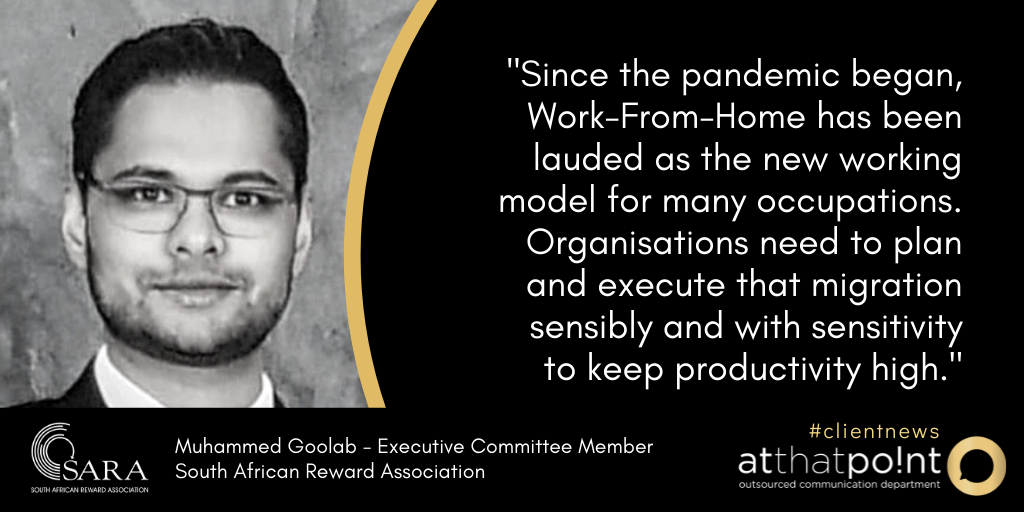
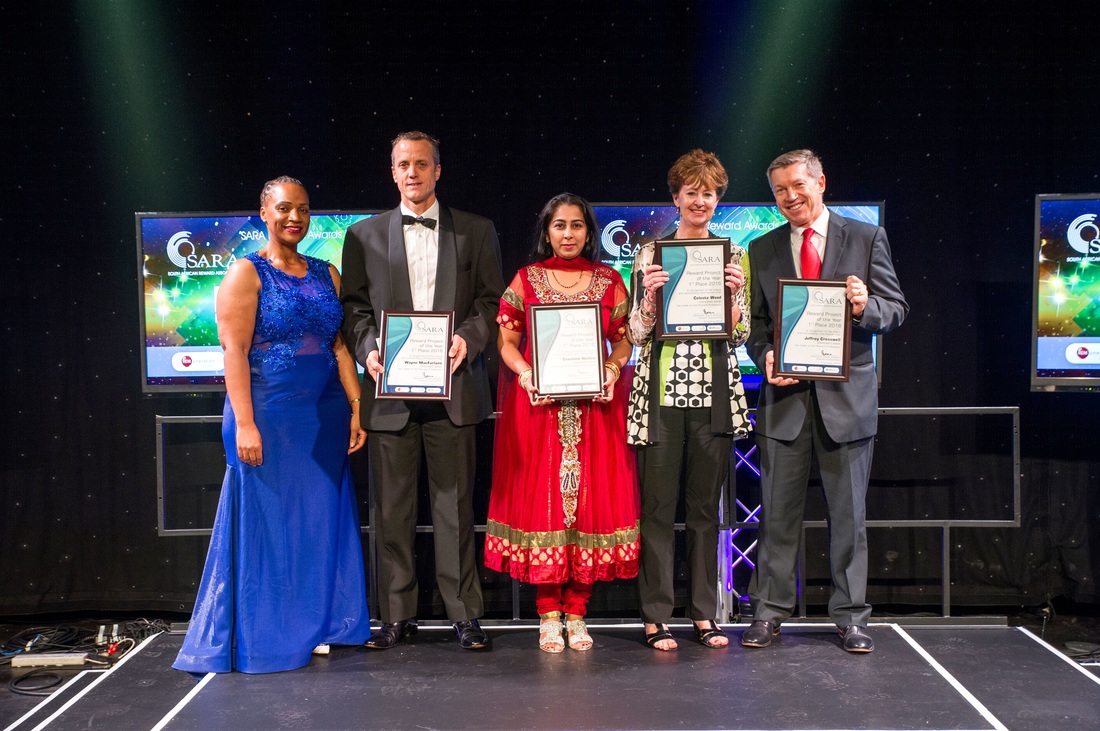
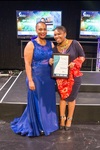
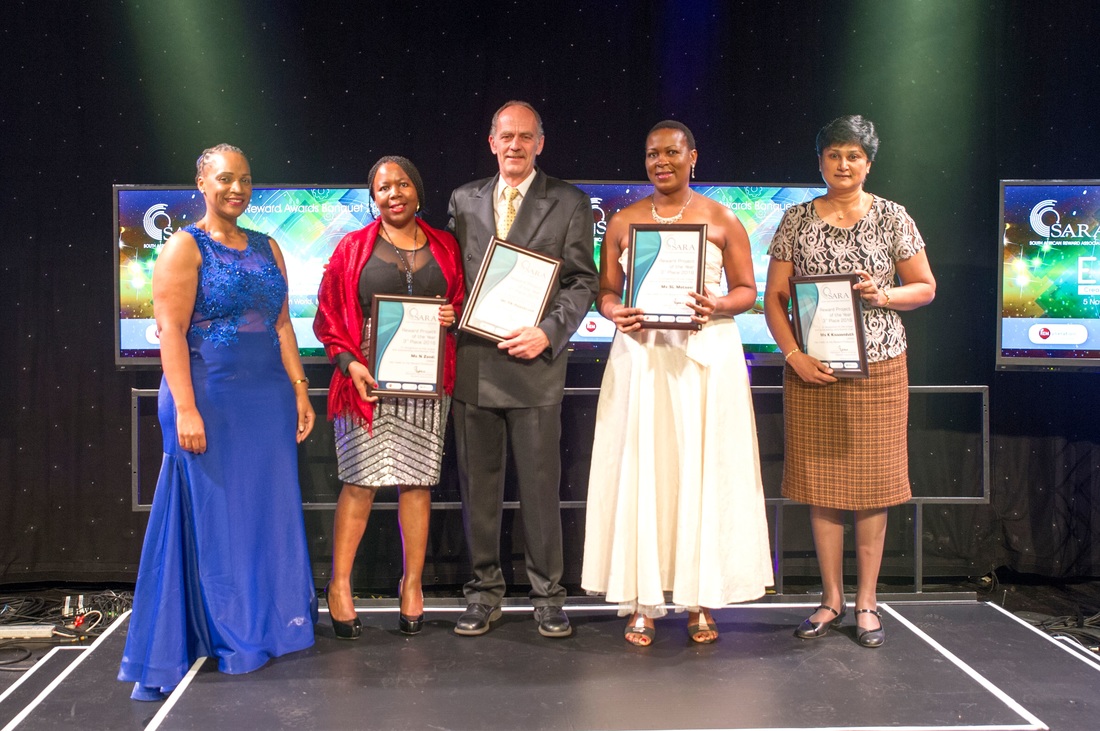
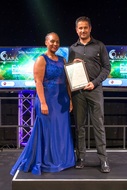
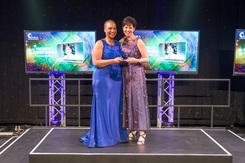
 RSS Feed
RSS Feed